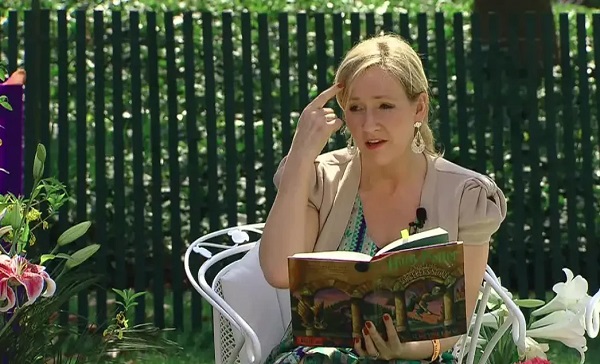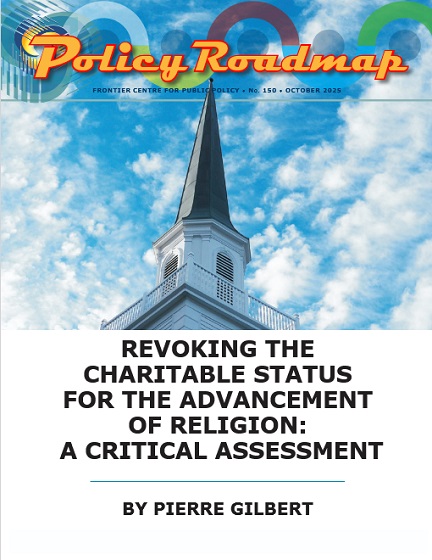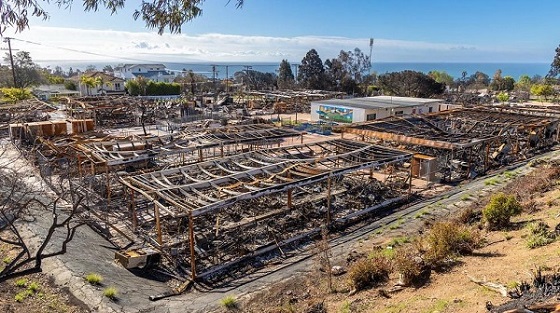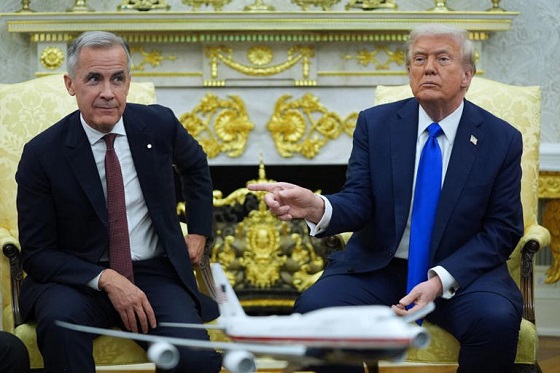Censorship Industrial Complex
Canada’s privacy commissioner says he was not consulted on bill to ban dissidents from internet

From LifeSiteNews
Privacy Commissioner Philippe Dufresne that there was no consultation on Bill C-8, which is touted by Liberals as a way to stop ‘unprecedented cyber-threats.’
Canada’s Privacy Commissioner admitted that he was never consulted on a recent bill introduced by the Liberal government of Prime Minister Mark Carney that became law and would grant officials the power to ban anyone deemed a dissident from accessing the internet.
Privacy Commissioner Philippe Dufresne said last week that in regard to Bill C-8, titled “An Act respecting cyber security, amending the Telecommunications Act and making consequential amendments to other Acts,” that there was no consultation.
“We are not consulted on specific pieces of legislation before they are tabled,” he told the House of Commons ethics committee, adding, “I don’t want privacy to be an obstacle to transparency.”
Bill C-8, which is now in its second reading in the House of Commons, was introduced in June by Minister of Public Safety Gary Anandasangaree and has a provision in which the federal government could stop “any specified person” from accessing the internet.
All that would be needed is the OK from Minister of Industry Mélanie Joly for an individual to be denied internet service.
The federal government under Carney claims that the bill is a way to stop “unprecedented cyber-threats.”
The bill, as written, claims that the government would need the power to cut someone off from the internet, as it could be “necessary to do so to secure the Canadian telecommunications system against any threat, including that of interference, manipulation, disruption, or degradation.”
While questioning Dufresne, Conservative MP Michael Barrett raised concerns that no warrant would be needed for agents to go after those officials who want to be banned from the internet or phone service.
“Without meaningful limits, bills like C-8 can hand the government secret, warrantless powers over Canadians’ communications,” he told the committee, adding the bill, as written is a “serious setback for privacy,” as well as a “setback for democracy.”
Barrett asked if the goal of the bill is for Parliament to be granted “sweeping powers of surveillance to the government without a formal review?
Dufresne said, “It’s not a legal obligation under the Privacy Act.”
Experts have warned that Bill C-8 is flawed and must be “fixed.”
The Canadian Civil Liberties Association (CCLA) blasted the bill as troublesome, saying it needs to “fix” the “dangerous flaws” in the bill before it becomes law.
“Experts and civil society have warned that the legislation would confer ministerial powers that could be used to deliberately or inadvertently compromise the security of encryption standards within telecommunications networks that people, governments, and businesses across Canada rely upon, every day,” the CCLA wrote in a recent press release.
Canada’s own intelligence commissioner has warned that the bill, if passed as is, would potentially not be constitutionally justified, as it would allow for warrantless seizure of a person’s sensitive information.
Since taking power in 2015, the Liberal government has brought forth many new bills that, in effect, censor internet content as well as go after people’s ability to speak their minds.
Recently, Canadian Conservative Party MP Leslyn Lewis blasted another new Liberal “hate crime” bill, calling it a “dangerous” piece of legislation that she says will open the door for authorities to possibly prosecute Canadians’ speech deemed “hateful.”
She also criticized it for being silent regarding rising “Christian hate.”
Aristotle Foundation
Efforts to halt Harry Potter event expose the absurdity of trans activism

The Vancouver Park Board hasn’t caved to the anti-J.K. Rowling activists, but their campaign shows a need for common sense
This November, Harry Potter is coming to Vancouver’s Stanley Park. And some people aren’t happy.
The park will host Harry Potter: A Forbidden Forest Experience, an immersive exhibit that’s been staged around the world, prompting outrage from the gay and trans community. Why? Because J.K. Rowling, the creative genius behind the Harry Potter franchise, has been deemed a heretic — a “transphobe” — for her publicly stated view that men are men and women are women.
Rowling’s journey into so-called heresy began almost six years ago when she dared to publicly support Maya Forstater, a British tax expert who lost her job for asserting on social media that transgender women remain men.
“Dress however you please,” Rowling posted on Twitter in 2019. “Sleep with any consenting adult who’ll have you. Live your best life in peace and security. But force women out of their jobs for stating that sex is real? #IStandWithMaya #ThisIsNotADrill.”
It seemed to me and many others a rather benign tweet. But it was enough to generate global outrage from the trans community and its supporters. Rowling’s books have been boycotted and burned, with even the actors who portrayed Harry Potter characters on screen — most notably Daniel Radcliffe, Emma Watson and Rupert Grint — turning against the author who made them famous.
And yet Rowling has stuck to her guns, defending women and their right to enjoy spaces free of biological males in shelters, prisons, sports and so on. And she has stood against the “gender-affirming care” model that transitions children; in an X post last December, she said, “There are no trans kids. No child is ‘born in the wrong body.’”
It is — or should be — fair game to debate Rowling’s views. But in the hyper-polarized world of transgenderism, debate isn’t permitted. Only cancellation will suffice. Hence the angry response to the Vancouver Park Board’s greenlighting of the “Forest Experience” exhibit.
Vancouver city councillors Lucy Maloney and Sean Orr have called for the park board to reverse its decision.
“The trans and two-spirit community have made their voices heard already about how upset they are that this is happening,” Maloney said. “J.K. Rowling’s actions against the trans community are so egregious that I think we need to look at changing our minds on this.”
Orr concurred. “This is a reputational risk for the park board right now,” he said. “If there’s a way we can get out of this, we should consider this.
Thus far, thankfully, most park board commissioners have stood their ground. The exhibit is scheduled to go ahead as planned.
It’s worth emphasizing that since Rowling began her public defence of biological reality, much has changed. In 2024, the final report of the United Kingdom’s Cass Review exposed the shocking lack of evidence for the “gender-affirming” model of care; this led to a ban on puberty blockers in that country. Multiple European jurisdictions have done the same, enacting safeguards around transitioning youth. Major sports organizations have begun formally excluding biological males from female competitions. And in April 2025, the British Supreme Court decreed that “woman” and “sex” refer to biological sex assigned at birth, not gender identity.
Suffice it to say that Rowling has been vindicated.
Yet, as shown by a report published last year by the Aristotle Foundation (which I co-authored), Canada is increasingly an outlier in doubling down on transgender ideology. The Canadian Medical Association, the Canadian Pediatric Society and the Canadian Psychological Association continue to endorse the “gender-affirming” model of care. Even Canada’s Gordon Guyatt, hailed as one of the “fathers” of evidence-based medicine, has been cowed into distancing himself from his own research, which laid bare the scant amount of evidence supporting “gender-affirming” care.
It’s hard to know what it will take to set Canada back on a path of common sense and scientific rationality. Some Potter-style magic, perhaps. Or failing that, a return to good old-fashioned tolerance for open discussion and an honest exchange of views.
Dr. J. Edward Les is a pediatrician in Calgary and a senior fellow at the Aristotle Foundation for Public Policy. Photo: WikiCommons
Censorship Industrial Complex
Winnipeg Universities Flunk The Free Speech Test

From the Frontier Centre for Public Policy
By Tom Flanagan
Frances Widdowson faced mob hostility for saying unmarked graves have yet to be proven
Dr. Frances Widdowson’s visit to Winnipeg on Sept. 25 and 26 should have been an opportunity for debate. Instead, the city’s universities endorsed a statement that undermines academic freedom.
Widdowson, a political scientist known for questioning official narratives about residential schools, came to meet students who wanted to ask about claims of “unmarked graves.” Those claims, which became national headlines in 2021 after ground-penetrating radar surveys at former school sites, remain unproven because no physical evidence of burials has been found.
For many Canadians, the claims of “unmarked graves” were a shocking revelation, given how widely the story was reported as a settled fact.
That context alone should have been enough to spark discussion. Instead, the University of Manitoba and the University of Winnipeg joined the Assembly of Manitoba Chiefs in issuing a statement that should embarrass both schools. At institutions dedicated to study and inquiry, the instinct should be to ask more questions, not to shut them down.
At first, the statement sounded reasonable. It said the universities did not “condone violence or threats to anyone’s safety.” But that did not stop Widdowson from being roughed up by a mob at the University of Winnipeg. It would be refreshing if the universities condemned mob violence with the same urgency they condemned a professor answering questions. Their silence sends its own message about which kind of behaviour is tolerated on campus.
The bigger problem is the statement’s claim that there is a single “truth” about residential schools, known to “survivors,” and that questioning it amounts to “denial.” In reality, 143 residential schools operated with federal support for more than a century. What happened varied widely from place to place and decade to decade.
That is a subject for historical research, grounded in evidence and debate, not pronouncements about capital-T “Truth” issued by communications offices. Canadians deserve to know that history is still being studied, not declared untouchable.
Worse still was the statement’s promise to “press the Government of Canada to enact legislation that makes residential school denialism a crime.” The Assembly of Manitoba Chiefs is free to say what it wants. But universities lending their names to a demand that historical inquiry be criminalized is beyond misguided; it is dangerous.
Criminalizing “denialism” would mean that even challenging details of the residential school record could be punishable by law. Canadians should think carefully before accepting laws that turn historical debate into a criminal offence.
The University of Chicago’s widely praised statement on academic freedom puts it well: “the University’s fundamental commitment is to the principle that debate or deliberation may not be suppressed because the ideas put forth are thought by some or even by most members of the University community to be offensive, unwise, immoral, or wrong-headed. It is for the individual members of the University community, not for the University as an institution, to make those judgments for themselves.” That principle should also guide Canadian universities. Academic freedom is not a luxury; it is the foundation of higher education.
Worst of all, these positions were not even issued in the names of presidents or academic leaders. They were issued under “media relations.” Imagine being a serious scholar or scientist at one of these universities and discovering that the media office had taken a political stance on your behalf.
I know how I would feel: undermined as a professional and silenced as a citizen.
Tom Flanagan is a professor emeritus of political science at the University of Calgary and a Fellow of the Royal Society of Canada. He is a senior fellow at the Frontier Centre for Public Policy and co-editor of the best-selling book Grave Error: How the Media Misled Us (and the Truth about Residential Schools).
-

 Business2 days ago
Business2 days agoTruckers see pay surge as ICE sweeps illegal drivers off U.S. highways
-

 International2 days ago
International2 days agoHamas releases all living hostages under Trump peace plan
-

 COVID-192 days ago
COVID-192 days agoThe Trials of Liberty: What the Truckers Taught Canada About Power and Protest
-

 Business11 hours ago
Business11 hours agoFinance Committee Recommendation To Revoke Charitable Status For Religion Short Sighted And Destructive
-

 Alberta11 hours ago
Alberta11 hours agoOil Sands are the Costco of world energy – dependable and you know exactly where to find it
-

 Brownstone Institute2 days ago
Brownstone Institute2 days agoTrump Covets the Nobel Peace Prize
-

 Health9 hours ago
Health9 hours agoColorado gave over 500 people assisted suicide drugs solely for eating disorders in 2024
-

 Business2 days ago
Business2 days agoNetherlands Seizes Chinese-Owned Chipmaker in Unprecedented Security Move







